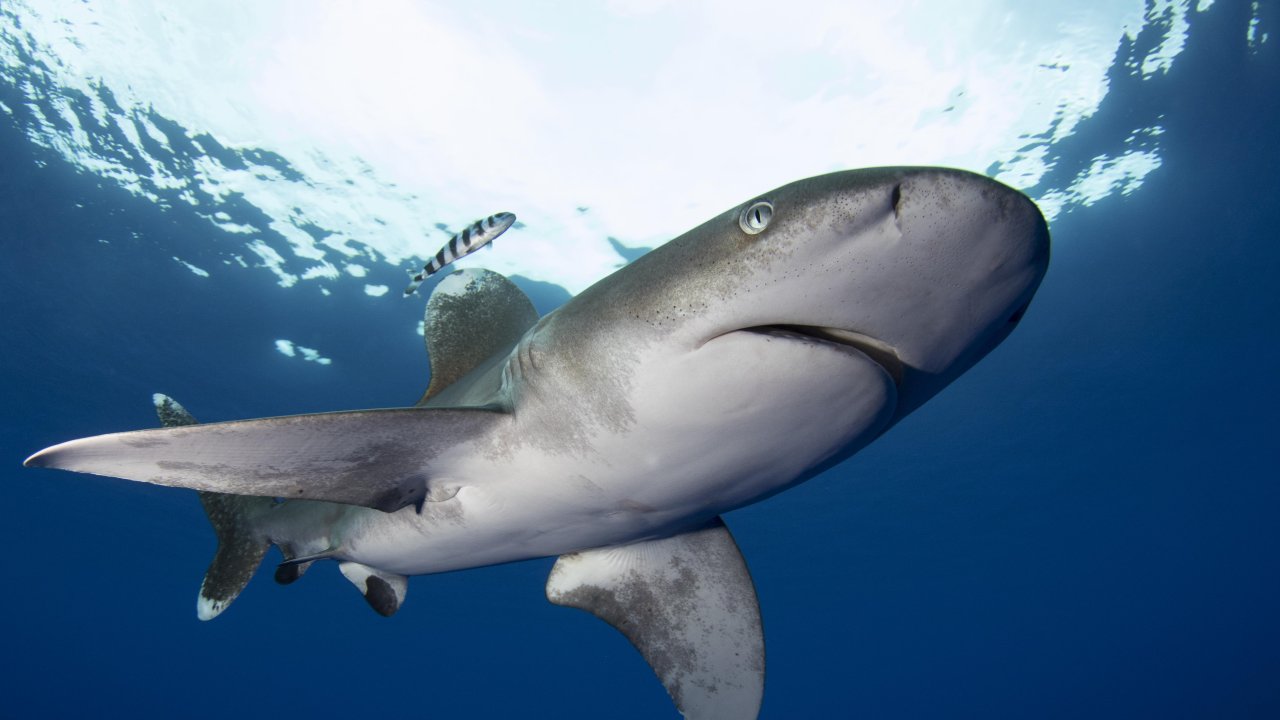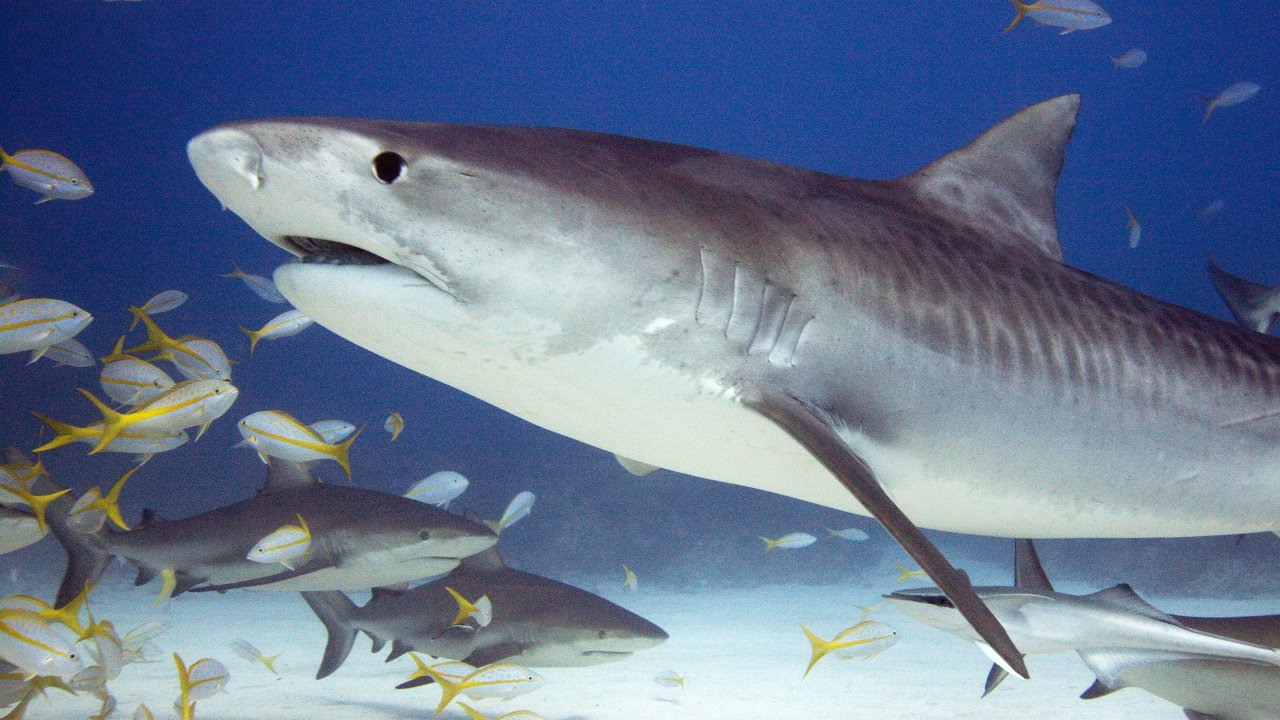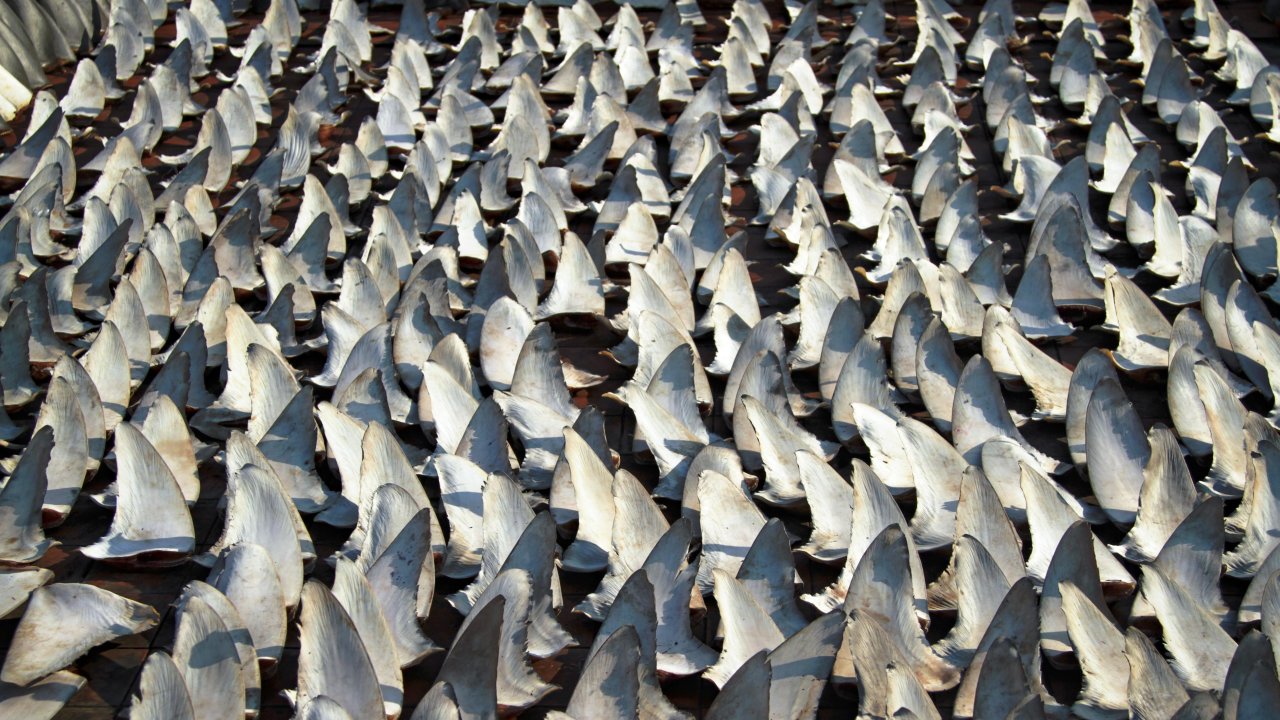
Dozens of shark species will get better protection with the tightening of the international Cites convention on trade in endangered wildlife.
BREAKING: Nearly 100 shark species now protected. Global leaders make groundbreaking vote at #CITESCoP19 world wildlife conference in Panama! https://t.co/HLkcJage2g pic.twitter.com/LZ71TV9DDJ
— ifaw (@ifawglobal) November 18, 2022
Horrific fact about sharks
One of the most horrific facts about sharks may surprise you. It has actually very little to do with sharks, and all with us humans. Each year, we kill at least 73 million sharks each year a new study reports. The primary reason is that we kill sharks cruelly only for their fins. Secondly, some consider it a ‘sport’ to catch them. This has led to a sharp decline in shark populations. Ourworldindata.org shows stocks are now way below the Maximum Sustainable Yield (MSY) is a common objective of fisheries management. It is the point beyond which a fishery tips into an unsustainable level (assuming fishing pressure remains the same) which can ultimately lead to stock collapse. https://www.sciencedirect.com/topics/agricultural-and-biological-sciences/maximum-sustainable-yield , and continue to decline.
Groundbreaking decision
Fortunately, there is also good news. IFAW announced that a groundbreaking decision has been taken by world governments. They promise to turn the tide for shark conservation, with nearly 100 species of shark and ray awarded increased protections by the 19th Conference of the Parties (CoP19) of the Convention on International Trade in Endangered Species of Wild Fauna and Flora (CITES).
 © Vanessa Mignon / IFAW – A great white shark
© Vanessa Mignon / IFAW – A great white sharkA large majority of the 184 participating countries voted in favour of protected status at a conference in Panama City. Especially shark species caught for their fins, for Asian shark fin soup, benefit. Only sustainable catches are now allowed and trade in shark products will be more strictly controlled.
From 25% to over 90% of shark species protected
“The trade in shark fins and shark meat puts many of these ecologically important predators at risk of extinction,” explains shark expert Barbara Slee. Until now, a quarter of shark species were protected, which now becomes more than 90 percent. “Thanks to this decision, shark species that have long been overlooked are finally getting the protection they so desperately need,” Slee said.
IFAW has long called for such measures to effectively manage shark fisheries. European countries with large fishing fleets, including the Netherlands, have a crucial role to play here. So far, there are few trade restrictions and little or no control over shark fishing.

The proposals required a two-thirds majority of governments present to pass. The requiem shark listing included 19 Critically Endangered or Endangered species and a further 35 species for lookalike reasons and was passed in a secret ballot with 88 votes in support, 29 against and 17 abstentions.
Why sharks matter
Alongside other predators, sharks play important roles in helping to maintain the delicately balanced ecosystems that keep our oceans healthy, saveourseas.com reports. Their feeding can affect prey population numbers, but also prey distribution. as they select a habitat to avoid being eaten.
Carbon Sinks
Large predators like sharks are also effective carbon sinks, so more large fish in our oceans could reduce the carbon dioxide being released into our atmosphere. Through their migrations and diving behavior, sharks also help cycle nutrients between different locations and the depths and shallow. The ripple effects of an ocean without predators could be far-reaching and devastating for marine life and life on land.
Want to help protect sharks? Support IFAW!
IFAW advocates for sustainable trade limits for shark species threatened by the international demand for shark fins, and provides resources and support to governments seeking to better manage sharks and rays in their region.